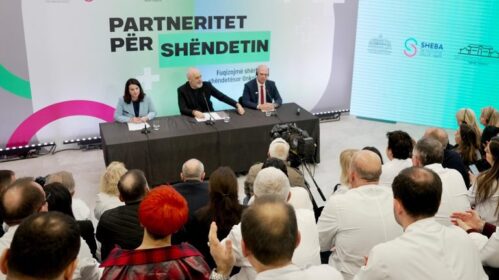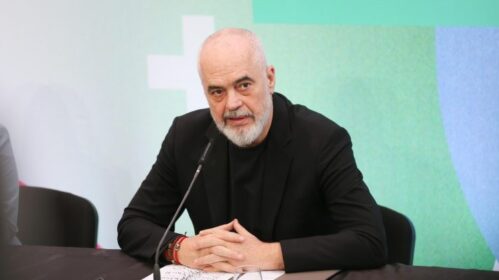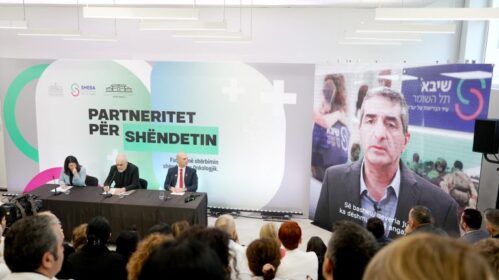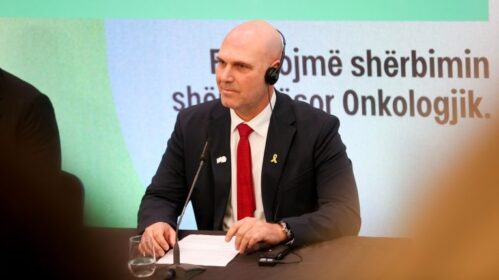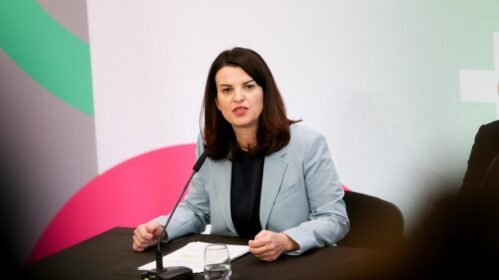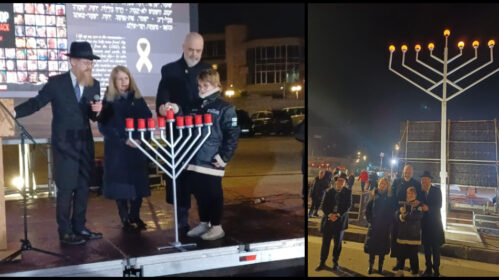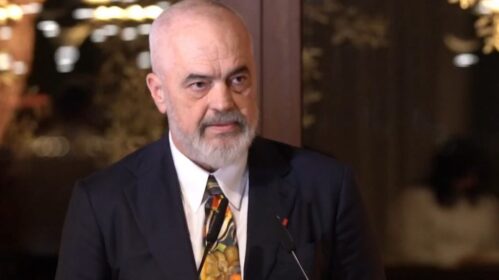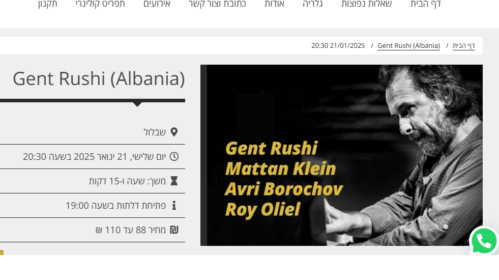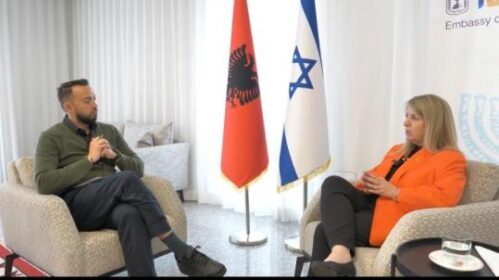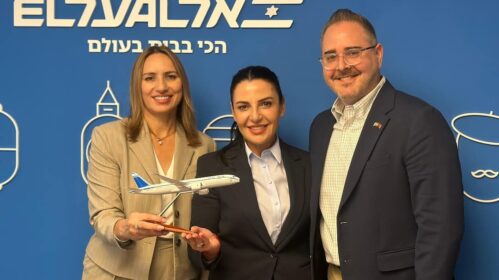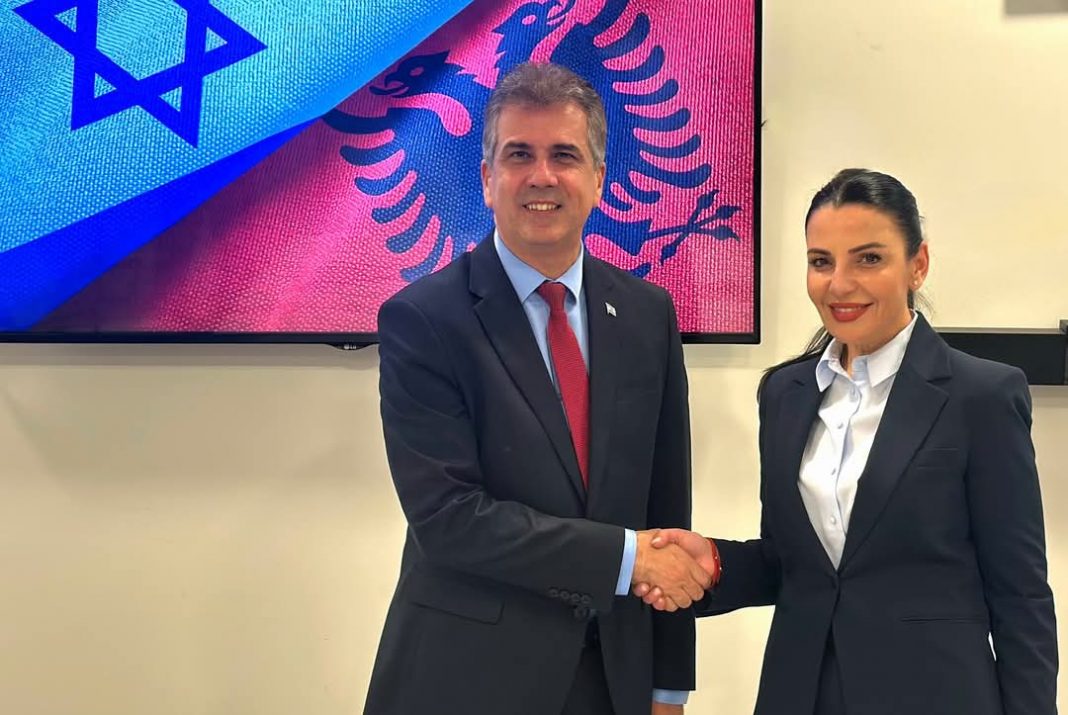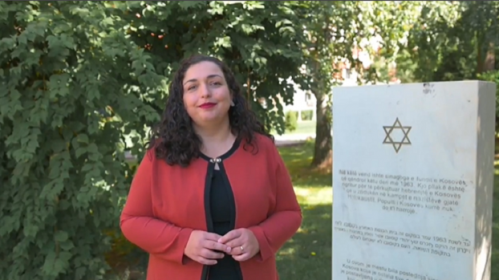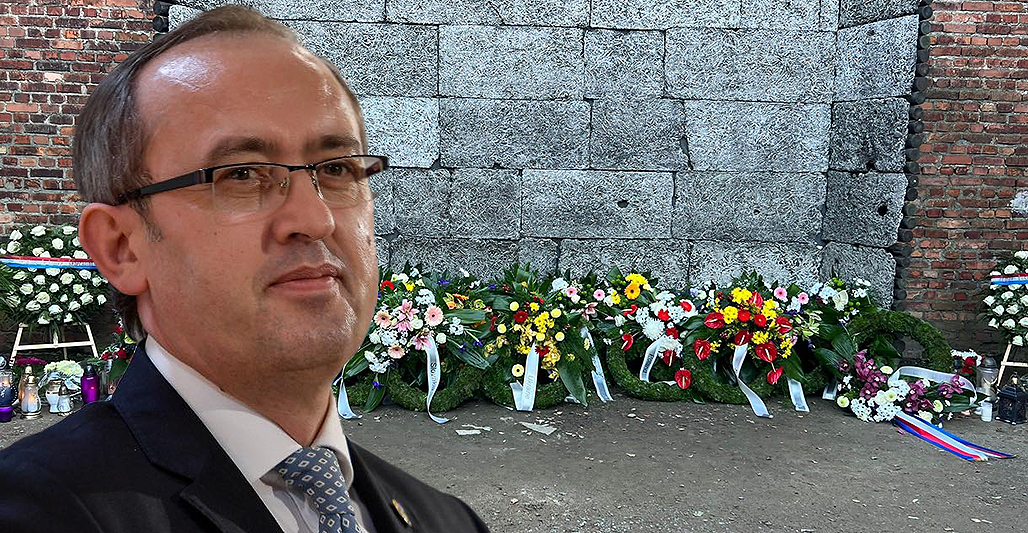By Tara Bahrampour April 23, 2017
In 1943, when Refik Veseli, a photographer’s apprentice, smuggled his mentor Moshe Mandil and Mandil’s family across Albania to escape the Nazis, he didn’t see himself as particularly heroic.
Mandil, who had already fled the Nazis in Yugoslavia, was his friend, and it seemed natural to 17-year-old Veseli to help. Veseli’s parents, who were Muslim, agreed, and they hid the Mandils and another Jewish family in their home in the village of Kruje for over a year as Jews were slaughtered across Europe.
Had the two families been discovered, the Veselis could have been killed. But it never occurred to them to turn the families away. Like Albanians of all faiths, they followed “besa,” a code of honor that requires protecting guests with your life, regardless of their religion or creed, and treating them as part of the family.
On Sunday, Holocaust Remembrance Day, Adas Israel Congregation in Northwest Washington honored the Veseli family and inducted them into its Garden of the Righteous, reserved for non-Jews who risked their lives to help Jews during the Holocaust.
Veseli died in 2000; his wife and two of his children traveled from New Jersey and Massachusetts to attend the ceremony, which included Albanian and Jewish folk singing and the addition of the family’s name to a plaque in the garden.
Raif Hyseni plays the accordion as members of the Veseli family were honored in an ceremony at Adas Israel Congregation in Northwest Washington. (Matt McClain/The Washington Post)
The lessons of the Veseli family are particularly trenchant at a time when Muslims, including refugees fleeing danger, face opposition in the United States, Rabbi Gil Steinlauf told the congregation.
“We are living in dark times in this country and around the world, as hate crimes, vicious speech and bigotry — particularly against Muslims — is on the rise,” he said. Noting that the synagogue had taken in a Syrian family, “as your own people have done for us, we are prepared to do for you,” Steinlauf said. “We will not stand idly by while people in positions of power reduce you to hateful stereotypes; we will not stand idly by while leaders defame your sacred religious beliefs and practices, and as your own people have so nobly done for us, we are ready to do what it takes to protect you from any harm.”
After the ceremony, congregants at the Cleveland Park synagogue approached the family to express gratitude.
“It’s an honor,” Andrew Davis, who had come with his 13-year-old son, Sammy, said to Veseli’s wife, Drita Veseli, 86. “Thank you for what your family did.”
Nechama Liss-Levinson, a visitor from Great Neck, N.Y., said she thought the choice of honorees this year was particularly relevant. “There’s been so much Islamophobia and fear of refugees,” she said. “As a Jew living in America it was very illuminating to see that in their Koran there’s this idea of [helping those in need]. It’s a totally different view of Muslim religious obligation than what we see repeated nowadays.”
Imam Yahya Hendi, a Muslim chaplain at Georgetown University who attended the ceremony, said it brought him to tears several times. “Jews know what pain is and know what it is to be turned away,” he said. “Hearing that the Jews of America will stand up for the Muslims of America, those were powerful words — that we’re all in this together.”
While there were gentiles across Europe who risked their lives to help the Jews, there was a different quality to the way it was done in Albania, said Floreta Faber, the country’s ambassador to the United States. While most Jews in hiding stayed invisible, “in Albania they were in the open, as ‘friends,’ or ‘guests,’ or ‘cousins from Germany,’ ” she said.
There was not a single known case of a Jew in Albania being turned over to the Nazis, and Albania was the only Nazi-occupied country in Europe that had more Jews at the end of the war than at the beginning.
At one point during the occupation, there was a report that the Nazis had left. “Everyone went out and celebrated, and that’s when everyone learned that my family had been giving shelter to two Jewish families,” said Refik’s son, Bujar Veseli, 59, who attended the ceremony.
The report turned out to be mistaken, and afterward the Veselis were terrified that the Nazis would show up at their door. But no one betrayed them. “It wasn’t just our family; it was all Albania that protected them,” Bujar Veseli said.
After the war, Refik Veseli and Moshe Mandil worked together briefly in Belgrade, and Mandil offered to bring his friend to Israel as his own son, but instead Veseli returned to Albania. There, during four decades of communist rule, contacts with the outside world were seen as subversive.
“The government did not allow us to talk about this; we discussed this only with the family,” Ermira Hoxha, Veseli’s daughter, said of her family’s actions during the war. Veseli was able to exchange only a single New Year’s card each year with Mandil. “Before we could receive this greeting card, my father had to go to the government and explain who was this person, and this happened every year.”
But in the privacy of his home, “he was hungry always to speak about them, and he was always talking to his three children about what happened,” Hoxha recalled. “He said, ‘Don’t forget you have a father and brother and sister over there.’ ”
The two families eventually established an Albanian-Israeli friendship organization that located other Albanians who had helped Jews during the war. In 1987 and 2004, members of the Veseli family were recognized as Righteous Among Nations by Yad Vashem, the organization in Israel that honors non-Jews who helped Jews during the war.
But Veseli never saw his old friend again; by the time he and his parents were allowed to travel to Israel, Mandil had died.
https://www.washingtonpost.com/local/social-issues/remembering-an-earlier-refugee-crisis-and-a-family-who-risked-their-lives-to-help/2017/04/23/4e442e44-2858-11e7-a616-d7c8a68c1a66_story.html?utm_term=.17766714878d





